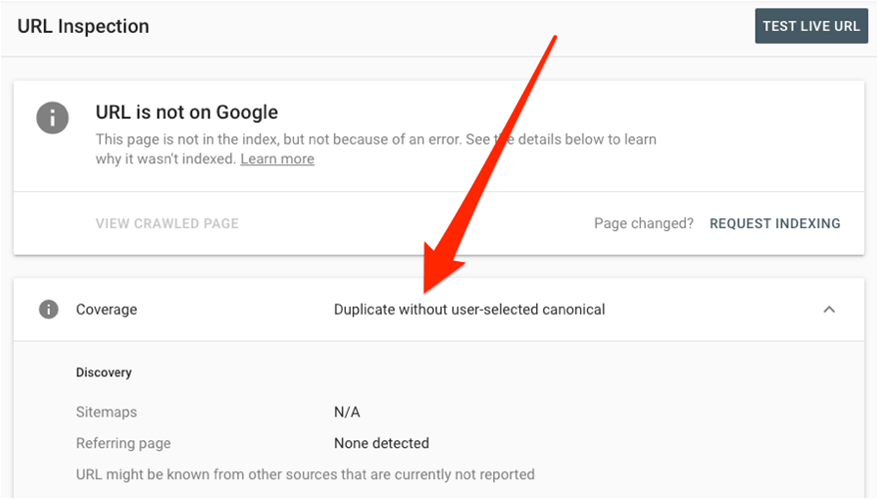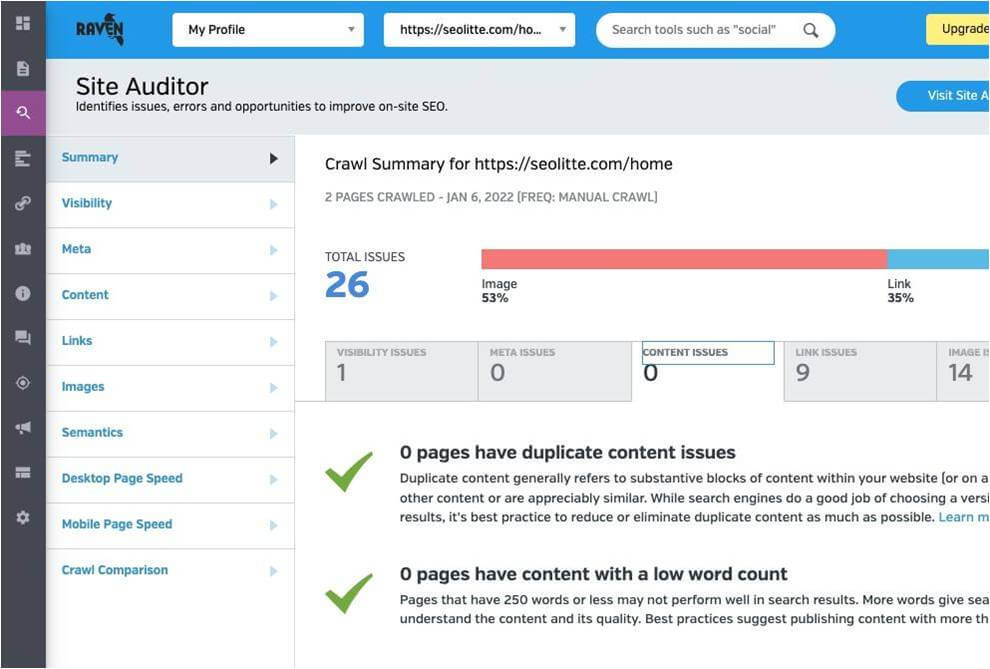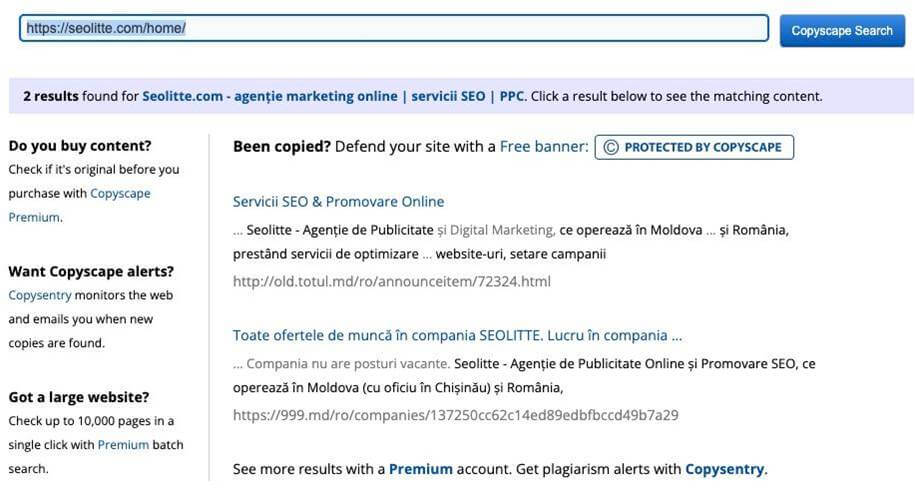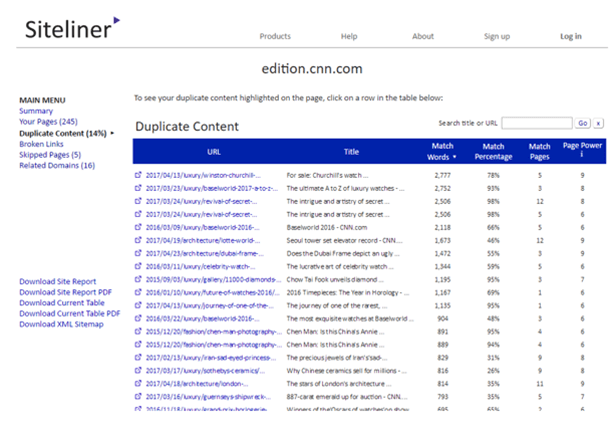Duplicate content and SEO have a long history together.
If you care in any way about the SEO side of your website(s), you've already heard that duplicate content can be a roadblock to your Google rankings.
Incidentally, the team at Google says, "We try hard to index and display pages with distinct information." And that means that if you have pages on your site without distinct information, it can significantly affect your search engine rankings.
Moreover, the Panda algorithm update, which penalizes the existence of duplicate content, was launched back in 2011. The filter helps reduce low-quality sites from the results. Thus, highlighting the most relevant ones for the subject sought. Google Panda claims that it only takes a few pages with poor quality or duplicate content for the entire site to be affected. Google also urges that those pages be deleted or blocked. This is to avoid being indexed by the search engine.
So, Google prefers genuine and good-quality content. If one page's information matches another page's information, Google will consider it to be duplicate content. And this can affect your search engine rankings. There is also a risk that pages with such content will not be indexed at all (i.e., stored in Google's database).
It's also important to know that the phrase "duplicate content" covers both pages that copy content from other sites, as well as information that is repetitive on your site.
Duplicate content on your site. How exactly are duplicates created?
As I said before, unique content is important. Duplicating it (plagiarism, reformulation (re-writing), or the presence of many pages with similar content) decreases your visibility in search engines.
You must ensure that the site does not have duplicate content, i.e., the same content appears on different site URLs. All unique content is required to be indexed. That's because the more pages with the same content the search engine indexes, the fewer Google resources are left to process the unique and truly valuable pages of your site.
Depending on how new pages are formed on the site, duplicates can be based on:
- tags;
- categories;
- URLs generated when searching on the website;
- URL parameters for campaign tracking and filtering;
- WWW vs. non-WWW URLs;
- author archives;
- pagination of comments.
For example, the structure of the WordPress CMS also admits some errors that negatively impact the SEO side. That is: duplicate content is created a lot. So we need to make some changes in the WordPress standards for SEO:
- Let's create unique titles on each page.
- Create unique meta descriptions on each page.
- To block the indexing of several ways in which an article appears.
- Let's specify in robots.txt where Google and other crawlers are allowed to index.
Another solution is to use canonical. Correct use of the Rel=Canonical Tag prevents duplicate content from forming on the site. Canonical tags are a way of telling search engines that a specified URL is a copy of a main page.

What are the top three problems of sites with a lot of duplicate content?
- Less organic traffic: Google does not want to rank pages that use content copied from other pages in the Google index. (Including pages on your website). Google is not sure which page is "original. So all three pages will struggle to rank.
- Google penalty (extremely rare): Google has said that duplicate content can result in a penalty or complete de-indexing of a website.
- Fewer indexed pages: This is especially important for websites with many pages (such as e-commerce sites). Sometimes Google doesn't just reduce duplicate content. It refuses to index it.
Fight duplicate links and information
Use a tool of SEO audit to find duplicate content: - raventools.com.

It scans your site for duplicate content (or weak content) and tells you which pages need updating.
To check if your website content is unique, you can use this tool - https://www.copyscape.com/

Using the siteliner.com tool can help quickly identify duplicate content issues on your site:

How do you fight those who steal your content?
You can remove stolen content by exercising your rights under the Digital Millennium Copyright Act (DMCA). Submit a DMCA takedown notice where the site is hosted. You can access this link and enter the URL of the one stealing your content to find out who is hosting it: https://lookup.icann.org/en/lookup
At the same time, we must inform you that there are hosting providers that ignore DMCA complaints.
Here's what search results look like after certain content has been removed:

Conclusions about Duplicate Content and SEO
Having content on your page that is identical to other material online can reduce your chances of ranking well in search engine results. It is very important to ensure that the content on the site is unique and >95% original. Caution is always a good tool to use. Check content uniqueness with the Copyscale tool or the Siteliner tool.
If you want top rankings in Google, consistently create high-quality content that provides more detail than your competitors (do this at least for your most important products). You also need to avoid duplicate content at all costs and learn to stand out with wow texts. You do this by optimizing the descriptions on your product pages and blog posts, plus using exceptional images, videos, infographics, etc.
But if you don't have time to create high-quality content, you can always call on our high-quality SEO Copywriting service at +373 69 809 235, or leave us a message on info {@}seolitte.com. We have over 9 years of experience in digital marketing.
